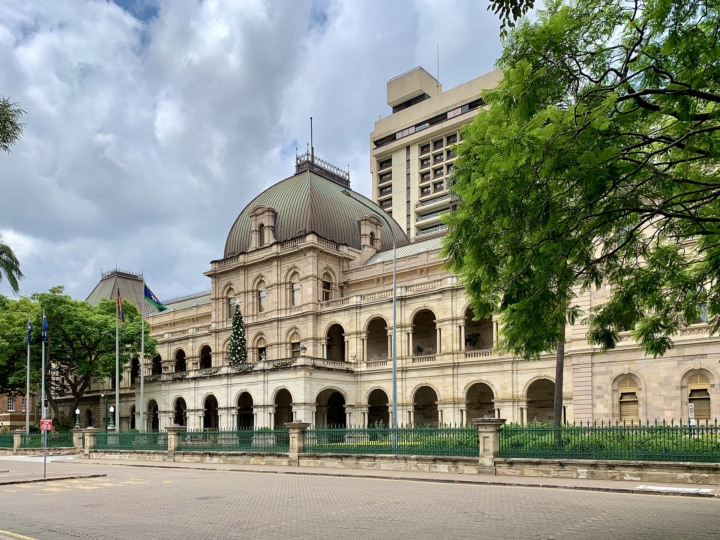Submission to Treasury – Proposed Amendment to Governance Standard 3

About Freedom for Faith
Freedom for Faith is a Christian legal think tank that exists to see religious freedom protected and promoted in Australia and beyond.
It is led by people drawn from a range of denominational churches including the Australian Christian Churches, Australian Baptist Churches, the Presbyterian Church of Australia, the Seventh-day Adventist Church in Australia, and the Anglican Church Diocese of Sydney. It has strong links with, and works co-operatively with, a range of other Churches and Christian organisations in Australia.
Executive Summary
Treasury has indicated that the Government is considering an amendment to the Australian Charities and Not-for-profits Commission Regulation 2013 which would add an extra paragraph to cl 45.15(2) of the Regulation, which sets out conditions under which a failure to comply with an Australian law may lead to serious penalties being imposed on charities (see note 3 to cl 45.15: “a serious infringement of an Australian law covered by governance standard 3 may allow the Commissioner to exercise his or her enforcement powers under Part 4-2 of the Act”).
Freedom for Faith opposes the change to the Regulation as currently drafted, because it may have unintended consequences for faith-based charities that find themselves in the position of having to act contrary to laws that violate freedom of religion or conscience. It seeks an amendment to the proposed paragraph 45.15(2)(aa) to narrow its operation to criminal offences involving assault.
Expanding the kinds of illegality covered in the Governance Standard
Freedom for Faith, as a legal think tank, is committed to the rule of law and would ordinarily have no difficulty with the proposition that a well-governed charity should not engage in breaches of the criminal law.
It understands that the purpose of this amendment is to deter the involvement of charitable organisations in destructive or harmful acts as a form of protest – for example, to advance a cause of environmental conservation or of animal rights.
The first two clauses would appear to be appropriately drafted to that end; but the third clause is very broad. It refers to “causing personal injury to an individual, or any other kind of impairment of an individual’s health, including the risk or threat of causing such injury or impairment”.
The words “or any other kind of impairment of an individual’s health” could then apply to claimed damage to a person’s psychological health or wellbeing. To breach the standard, the conduct must be capable of being charged as an offence, so that is a limitation. Unfortunately, we are now seeing laws in the States and Territories that create summary offences for engaging in conduct that, it is said, might cause harm to a person’s psychological health. Examples are the Change or Suppression (Conversion) Practices Prohibition Act 2021 (Vic.) and the Sexuality and Gender Identity Conversion Practices Act 2020 (ACT). Both these laws apply to the provision of counselling, therapy and prayer of certain kinds. A priest or pastor could be charged with an offence for praying with someone, at their request, about such issues. That the clause refers to an “Australian law” means that it will operate even if the relevant conduct is a summary offence in only one or two out of Australia’s nine jurisdictions.
These laws even make it an offence for a parent to take a child out of the jurisdiction for certain forms of therapy. The law in these two jurisdictions may well make it unlawful for a parent to take a child from Wodonga to Albury, or from Canberra to Queanbeyan, for counselling to address an unwanted same-sex attraction or gender confusion. We will not go into the detail of the law in each jurisdiction; these laws vary in certain respects and there may be certain applicable defences or exemptions. Suffice it to say that they are causing serious concern amongst many church leaders as well as leaders in the medical and mental health professions.
With changes to the law such as this, and no doubt other laws that will be passed in the future, charities may well find themselves in the position where they cannot, in good conscience, accept laws that violate human rights, and in circumstances where the great majority of the population, if asked in a survey, would probably agree with the charity’s position. The government of one state might vehemently disagree with a summary offence passed by the Parliament of another State. On such matters, there is unlikely to be national agreement.
For these reasons, we ask at a minimum, that the law be amended to refer to a summary offence that involves “committing an assault on a person thereby causing bodily harm”. This is consistent with what we understand to be the Government’s intentions, but exposes faith-based charities to less risk of adverse action for acting in ways that even five years ago, would have been accepted as a valid expression of their faith traditions and in accordance with the internationally recognised human right of freedom of religion and conscience.




